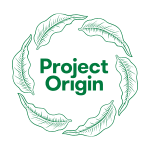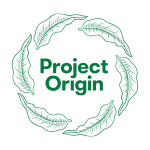Sustainable Initiatives
Sustainability at El Arbol

In 2015, Saša Šestić and Claudia Lovo teamed up to purchase land in Dipilto, Nueva Segovia, Nicaragua. This land was previously used to grow commercial grade coffee trees, and both Saša and Claudia believed that they could convert it to producing high quality, specialty grade coffee. This farm was called El Árbol, after the giant tree that grew in the centre of the property, and today it is a symbol of community, sustainability, and quality specialty coffee.


The goal at El Árbol was to create a fully sustainable specialty coffee farm by 2025. Upon purchasing the farm, they realised this goal would require many changes and a lot of work. Before Saša and Claudia could begin to look at improving the coffee trees that grew there, they first had to think about the workers. Managing a coffee farm successfully is near impossible without the help of workers, agronomists, or pickers, and El Árbol had workers and chefs already employed who Claudia was determined to keep.
Social Sustainability
The conditions in which the workers lived were not great. Saša shares in his book: “One of the most heartbreaking things I saw on the farm were the conditions where the workers lived. They lived in a small, windowless room, about 6 metres squared, without even a concrete floor – it was just dirt. Unbelievably, there were 18 people who slept in these rooms. … I was appalled.” The Coffee Man, page 219.
Before considering the quality of the coffee, Claudia and Saša first invested in the people. They renovated the workers’ sleeping quarters: placing proper flooring beneath their feet, adding windows for light, and buying mattresses for better sleep. They then looked to the kitchens and purchased an electric mill to grind corn for the tortillas, so that the chefs did not have to wake at 3am to manually grind the corn for 3 hours prior to breakfast. To help enable a more balanced diet, a section of the farm became dedicated to growing vegetables, so the workers had access to fresh food beyond the staple rice, beans, and tortillas they were used to eating there. A flock of hens were bought for eggs and fruit trees were planted, with the workers allowed to pick and take the fruit home to their families when ripe.
These changes all sound very wholesome and charitable, but they were not initially well received. Saša recalls how the workers resisted these changes, as they believed the use of these new luxuries would result in extra work and harder labour for them. Claudia’s patience and kindness is what helped them understand these changes.
In time, the workers began to trust in Claudia.
In addition to creating a more comfortable and healthier living situation, Claudia and Saša arranged to pay the workers more than what they were previously receiving. They were paid nearly double per latta of cherries they picked, and they were also paid for collecting the fallen cherries, as these would eventually cause issues for the trees. El Árbol slowly grew to become socially sustainable in a way that would allow for environmental sustainability to take shape.

Environmental sustainability
El Árbol planned to be totally organic by 2025. The transition from using chemical fertilisers to organic fertilisers is not a job that can be done quickly, at the risk of negatively shocking the trees and soils, but it can be adjusted over time. In addition to becoming organic, Claudia and Tim have put a lot of effort towards both maintaining and improving the biodiversity at the farm, as this is beneficial to the soil’s health, the coffee tree’s growth, and the local fauna that lives in the area.
Upon purchasing El Árbol, Saša and Claudia knew they would need to put a lot of love and effort into their soils and the landscape. Many of the original coffee trees were old and uncared for and needed to be replaced. These changes all take a long time to implement, and Saša recalls the tough few years in the beginning, with weather conditions causing loss in ripe cherries and processing methods resulting in a trial-and-error style of discovery for their lots. After many years of persistence, El Árbol successfully grows multiple varietals of coffee, and engages in processing styles that allow for a great diversity in cup profiles and flavours. Not only have they discovered what works for them, but they are now also in a position to begin helping others in their local area, by offering knowledge, support, and the use of their equipment for processing.

Today
El Árbol symbolises more than just a coffee farm. They help process coffees for neighbours who do not have the necessary infrastructure, they provide CM processing knowledge and equipment to help elevate coffee lots to increased qualities, they support their workers and families through respectable conditions, fair pay and social support of medical care and education. It is also home to Lola the cow, the symbol of our Project Origin Regional coffee lot from the Dipilto region, and a source of milk for the workers.
The work of Claudia and Saša, with the collaboration of many others, at rejuvenating this old commercial grade coffee farm into a haven for quality lots and a fair and sustainable place of work for many people is highly commendable and inspiring. We are proud to partner with producers like Claudia whose vision extends beyond herself, and we thank her and Saša for sharing their story on investing their energy, time, and money towards this project. Project Origin will continue to share the work and progress of El Árbol and share updates on their sustainability goals and accolades.
You can read more about El Árbol and the work of Claudia and Saša in “The Coffee Man” book, written by Saša Šestić.

